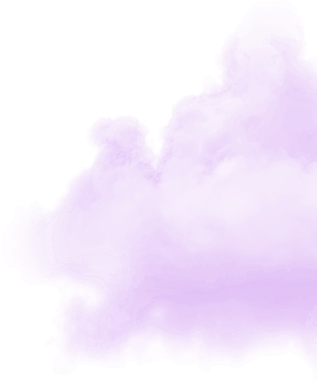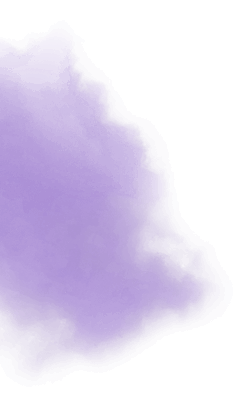This is a 4-minute read
“Its purpose is to essentially tell the body when to fall asleep and when to wake up.”
MELATONIN AND YOUR BODY
Melatonin is a hormone that is naturally produced by the pineal gland in the brain, which is a pea-sized gland located in the upper-middle section of your brain. Its purpose is to essentially tell the body when to fall asleep and when to wake up. It does this by increasing the amount of melatonin in your system as the sun sets, making you feel sleepy, and decreasing the melatonin in your system as the sun rises, helping you wake up in the morning.
While researchers are still learning about melatonin, it’s theorized that melatonin has important cognitive and development benefits. We know you create the most melatonin when you’re around 3 years old, and this steadily decreases as you get older. People age 70 or older have about a quarter of the amount of melatonin in their systems during sleep that teenagers do.
And, the amount of melatonin your body produces isn’t just based on the time of day or your age, it’s also impacted by the seasons. When days get shorter and darker during winter months, your body may produce melatonin in different amounts and at different times.
WHAT IS CIRCADIAN RHYTHM?
Melatonin isn’t the only element impacting your sleep – in fact, it’s a part of another natural, internal process called the circadian rhythm. Also known as your sleep-wake cycle, your circadian rhythm is your brain’s internal sleep clock. When it’s working as it should, you get drowsy around the same time each night and you wake up around the same time each morning. However, your circadian rhythm may be different than those around you. So-called “night owls” and “morning birds” have different circadian rhythms, but by keeping predictable sleep schedules, both types should wake feeling well-rested and stay energized throughout the day.
Ways to keep your circadian rhythm on track include sticking to a regular sleep schedule, allowing plenty of time for quality sleep, and exposing your body to natural sunlight during the day. Studies have shown that light is very important, as it sets our circadian rhythm via dedicated light sensors within the eye. Our eye detects daytime & nighttime within our environment, and adjusts the body's circadian rhythm so that it corresponds with the time of day. You can disrupt your circadian rhythm by staying up later than usual, sleeping in on weekends, and frequently traveling across time zones. A disrupted circadian rhythm can leave you feeling groggy when you wake up or restless when you should be asleep.
MELATONIN SUPPLEMENTS & DOSAGE
Although your body already makes melatonin on its own, you can also purchase melatonin supplements. These can be an appropriate way to increase the amount of melatonin in your system when you’re having trouble falling asleep or staying asleep during the night. Supplemental melatonin works naturally with your body to help you fall asleep.* melatonin supplements are also a great choice when experiencing daylight savings time, jet lag, or schedule changes that may affect your circadian rhythm. For example, if you have a job that disrupts a typical sleep schedule, melatonin supplements can be a good tool to reset your circadian rhythm so that your body can get the rest it needs.
While there are all kinds of melatonin supplements out on the market, many vary by formula and melatonin dosage. In the United States, a melatonin dose can range from less than 1mg to above 10mg per serving. A common question that comes up is: does more melatonin per serving in a supplement make you fall asleep faster? Some researchers say the answer is no – some research shows that beyond 3mg per serving, ingesting more melatonin into your system does not help you fall asleep faster. In fact, it shows that increasing your melatonin dosage beyond this amount only ensures that it will take longer to return to normal levels. The longer it takes melatonin to leave your body, the more likely you will wake up with grogginess the next morning. If you’re considering a melatonin supplement, our recommendation is to consult your healthcare provider first, and start at a low melatonin dose to see how it affects your body & sleep.
So how is ZzzQuil PURE Zzzs different from other melatonin supplements? The melatonin in our PURE Zzzs products affects your brain in the same way that the melatonin your body naturally produces does. It works by triggering your circadian rhythm to recognize that it’s time for sleep. What makes us different is our mindfully crafted formula. With ZzzQuil PURE Zzzs, you can get restful sleep in a busy, bright city or in a remote, cozy cabin on a winter night. Because ZzzQuil PURE Zzzs Melatonin can be taken as needed, it’s a great option for travelers or for any time you feel that your circadian rhythm has been thrown off.
Now that you know what melatonin is and how it effects your sleep-wake cycle, you’ll be better able to decide if you need a supplement of melatonin before bed to help you fall asleep. When that happens, don’t spend the night counting sheep instead of getting sleep. The sleep experts at Vicks designed ZzzQuil PURE Zzzs Melatonin as a sleep solution that will help you fall asleep naturally* so you can wake up refreshed and take on your tomorrow.
Read more about melatonin:
• Is Melatonin Safe?
• First Time Taking Melatonin?
• What Is The Optimal Melatonin Dosage?
• PURE Zzzs FAQS


